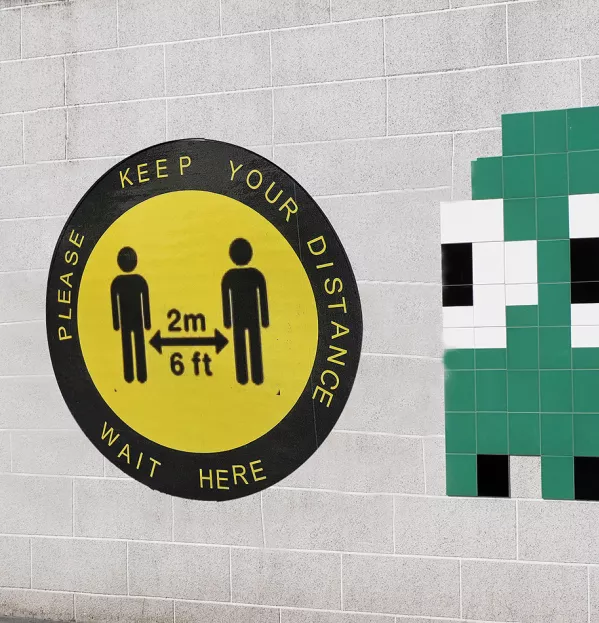After six months of seeing it measured out in public spaces, we should all be pretty good judges of two metres. But a surprising number of people still seem to be struggling.
At one extreme, you have those who launch themselves into the nearest bush at first sight of another human. Then there are those who insist upon having every chat two inches from your face. Other than being alarming, the former is not a problem. The latter, though - that definitely needs tackling.
Some people have a genuine reason for a lack of spatial awareness. Those who are dyspraxic or autistic, for example, can experience difficulty in recognising other people’s need for distance (although some autistic people also don’t like people getting too close to them). As for young children, as yet there is no statutory standardised test on distancing, so of course such a skill could not possibly exist.
Teachers, though: we get it right, right? We don’t haphazardly wander into that no-go, invisible two-metre hula-hoop of danger everyone now carries around with them, do we?
Oh, if only that were true. Teaching is a profession of “quiet words”, gossip in the shadows and huddles outside classrooms. We’re used to being close and talking in hushed tones to avoid prying ears.
Some have found it harder than others to shake off those habits. Some don’t realise they haven’t shaken them off. Some won’t want to. Every teacher reading this will have had their space invaded in the past six months. And every teacher reading this will experience it again in the coming months. So, what can you do about it?
Your first response should be to give them the benefit of the doubt. Perhaps they missed the whole “hands, face, space” thing and need a crash course. Next time they get too close, take a step back and say, “Sorry, I got a bit close to you there, don’t want to be in breach of the scientifically advised, universally applied rule of keeping two metres from other people at all times…”
The trouble here is that some people still won’t get the point. You’ll step back, they’ll step forward, you’ll step sideways, they’ll step sideways too, and before you know it you’ve done five laps around the staffroom.
At this point, you have two options. If you hate confrontation, then you need to deploy avoidance tactics. If a teacher refuses to stop invading your space, then make that space as difficult to find as possible. Yes, that might mean jumping into a metaphorical hedge every time you catch sight of them, making you as bad as those I suggested might be “extreme” above, but hey, needs must.
Your second option is direct action. Firmly, but politely (and if possible, without an audience), just explain that they are getting too close and that it is making you feel worried, in light of the current situation.
Neither of those two options appealing or practical? Well, here’s my final piece of advice: you could always buy a Zorb - you know, those big things you climb inside and then someone pushes you down a hill in some twisted idea of fun. If anyone asks what the hell you’re doing, you could just explain it’s your interpretation of the “bubble” system.
Gemma Corby is a journalist and supply teacher
This article originally appeared in the 23 October 2020 issue under the headline “How to deal with a space invader”
